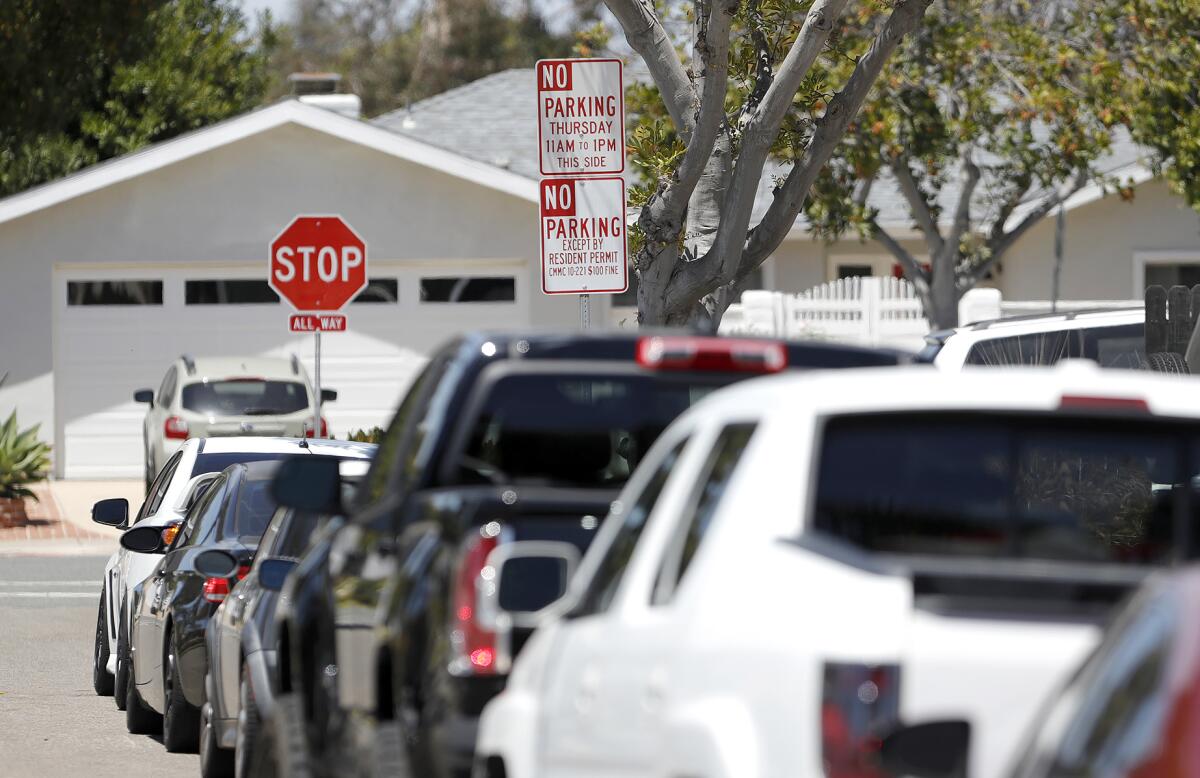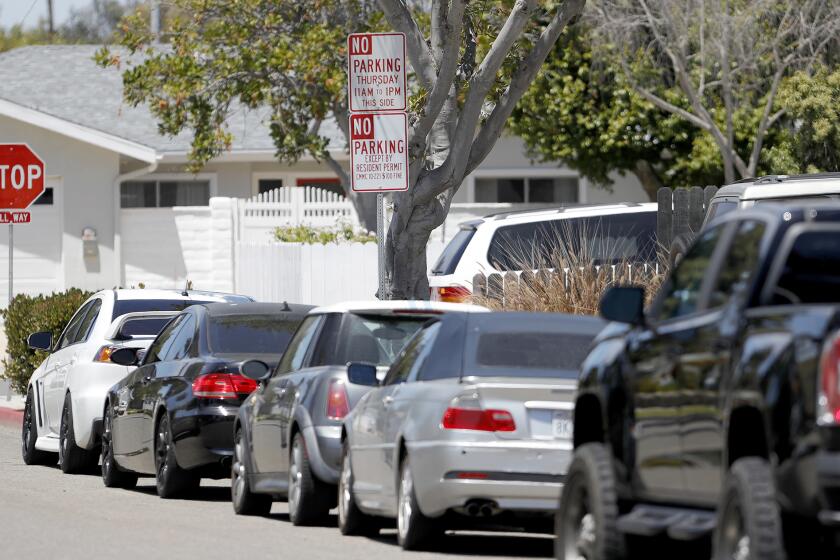Costa Mesa adopts residential permit parking program to end curb crowding

Looking to curb parking pains in certain residential areas, Costa Mesa officials last week approved a new parking permit program to which any residential street can apply and establish a fee structure they say will keep the program cost neutral.
The City Council during its July 19 regular meeting approved the program in a second reading, allowing Costa Mesans to petition for a “permit-only parking” zone if 51% or more of affected tenants or homeowners sign a petition and the street’s parking occupancy is high enough.
Now, staff will begin implementing the new program, which will be operated through an online permitting system that lets users create and maintain individual household accounts. A license plate reader camera will allow police personnel to enforce the rules. That work is anticipated to take at least six months.
Once the infrastructure is in place, households participating in the program will be able to secure up to four permits per driver per vehicle at each residence and up to 100 guest parking passes per household. Consideration will be given to special circumstances that might require adjustments.
The program’s start-up cost is estimated at around $220,000, but permit fees and violations for offenders are expected to recoup those costs, according to transportation services manager Jennifer Rosales.
“These fees are aimed to cover the administration of the program for efficient management and enforcement,” Rosales told council members, explaining the fee structure would be reviewed every two years.
A household’s first permit will cost $25, while the second will run $50, up to $100 for a fourth permit. Applicants who qualify as low-income will be asked to pay $5 for a first permit, $10 for a second, $25 for a third and $40 for a fourth.
Although permit parking is currently free and applies mostly to R-1 single-family zones, council members agreed May 3 to expand eligibility to all residents and charge an annual fee.
Previously, only streets comprising single-family households were eligible for permits, and they were provided at no cost, causing some homeowners with full garages to park off-site and, consequently, clog the streets around them. The new program provides equity by offering the option to all residents.
Rosales estimated about 1,100 residences participated in that program — roughly two-thirds of those eligible — with an average of 2.3 permits per household. That rate was used to estimate engagement in the citywide program.
Councilman Don Harper expressed concern for the ramifications of low participation and whether that might keep the new program from being cost neutral.
“You’re going to end up backing into some fee structure, and if you don’t have enough people who are buying parking permits, you’re going to have a net loss,” he said.
Public Services Director Raja Sethuraman said revenue collected through permitting and fines would cover both administrative and enforcement costs. Residents speaking in public comment wondered aloud what would happen if the program generated more revenue than it cost.
Resident Maurice Mandel said if a parking violation was fined $114, the money coming in could add up quickly. He indicated that one ticket per day would net $41,400 in the course of a single year. David Martinez put forth a suggestion for any excess revenue.
“It would be nice to say if there happens to be more money generated from this program on a particular street, maybe it would go to helping that street, rehabilitating it, adding sidewalks — whatever improvements might be needed,” Martinez said.
The City Council approved amending the city’s municipal code to implement the residential permit parking program in a 6-1 vote, with Harper opposed.
All the latest on Orange County from Orange County.
Get our free TimesOC newsletter.
You may occasionally receive promotional content from the Daily Pilot.





